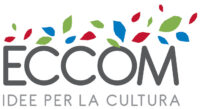It can be understood as one of the many opposites of fear, a dangerously widespread attitude in our society. Instrumentalising fear is easy because it is composed of a myriad of different facets: fear of the foreigner, fear of terrorism, fear of the economic crisis, fear of every unknown man when I walk alone at night on the street. As soon as any aspect of this “great fear” engages in our minds, it takes very little to make room for the acceptance of security, repressive or nationalist policies. We are comforted by the illusion that if we gather in our homes, behind brick walls and masks of indifference we will finally be safe among equals. The importance of maintaining a positive, favourable and trusting attitude in the encounter with the other thus becomes a political tool to affirm the refusal to live in fear, to renounce one’s individual liberties and the desire to explore the world in the name of security. But trusting also means starting from the assumption that there is something that equates people despite all of their possible differences. This “common humanity” becomes the basis from which to begin: to think that everyone deserves the equivalent of what I hope for myself and my loved ones; that rights, freedoms, and wellbeing are not a luxury for the privileged few; that all the people in front of me are artists or scientists “in power”… Recognising our common humanity and the human potential of each of us is not only a useful interpretative tool to learn about and relate to differences, but it can become a starting point to formulate inclusive and supportive political strategies.
